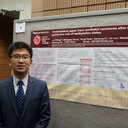Tetrandrine Interaction with ABCB1 Reverses Multidrug Resistance in Cancer Cells Through Competition with Anti-Cancer Drugs Followed by Downregulation of ABCB1 Expression.
Keywords
Abstract
The overexpression of ABC transporters induced by anticancer drugs has been found to be the main cause of multidrug resistance. It is actually also a strategy by which cancer cells escape being killed. Tetrandrine is a natural product extracted from the stem of Tinospora crispa. In this study, tetrandrine showed synergistic cytotoxic activity in combinational use with chemotherapeutic drugs, such as Doxorubicin, Vincristine, and Paclitaxel, in both drug-induced and MDR1 gene-transfected cancer cells that over-expressed ABCB1/P-glycoprotein. Tetrandrine stimulated P-glycoprotein ATPase activity, decreased the efflux of [3H]-Paclitaxel and increased the intracellular accumulation of [3H]-Paclitaxel in KB-C2 cells. Furthermore, SW620/Ad300 and KB-C2 cells pretreated with 1 μM tetrandrine for 72 h decreased P-glycoprotein expression without changing its cellular localization. This was demonstrated through Western blotting and immunofluorescence analysis. Interestingly, down-regulation of P-glycoprotein expression was not correlated with gene transcription, as the MDR1 mRNA level exhibited a slight fluctuation in SW620/Ad300 and KB-C2 cells at 0, 24, 48, and 72 h treatment time points. In addition, molecular docking analysis predicted that tetrandrine had inhibitory potential with the ABCB1 transporter. Our results suggested that tetrandrine can antagonize MDR in both drug-selected and MDR1 gene-transfected cancer cells by down regulating the expression of the ABCB1 transporter, followed by increasing the intracellular concentration of chemotherapeutic agents. The combinational therapy using tetrandrine and other anticancer drugs could promote the treatment efficiency of drugs that are substrates of ABCB1.




